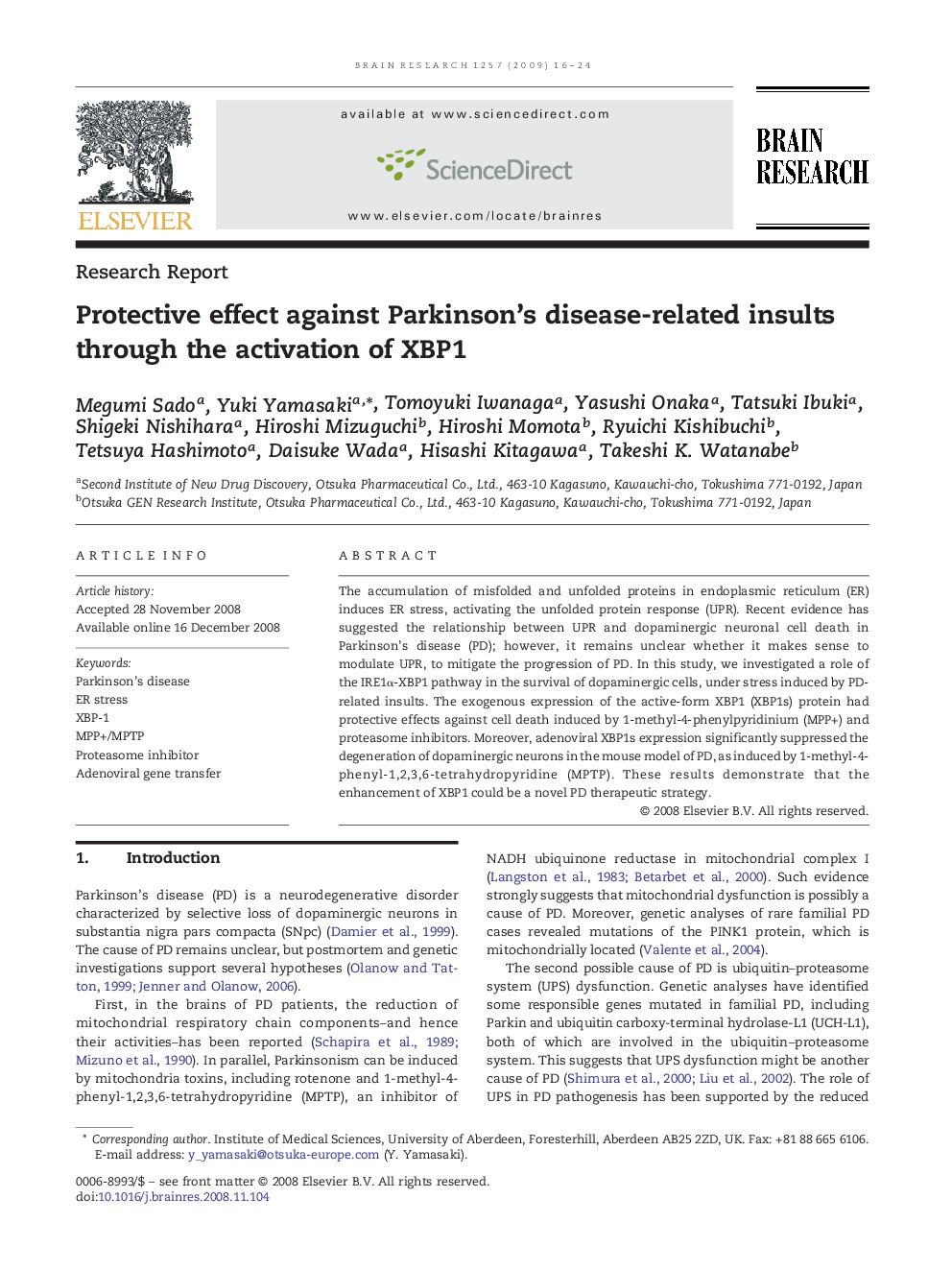| Article ID | Journal | Published Year | Pages | File Type |
|---|---|---|---|---|
| 4328604 | Brain Research | 2009 | 9 Pages |
The accumulation of misfolded and unfolded proteins in endoplasmic reticulum (ER) induces ER stress, activating the unfolded protein response (UPR). Recent evidence has suggested the relationship between UPR and dopaminergic neuronal cell death in Parkinson's disease (PD); however, it remains unclear whether it makes sense to modulate UPR, to mitigate the progression of PD. In this study, we investigated a role of the IRE1α-XBP1 pathway in the survival of dopaminergic cells, under stress induced by PD-related insults. The exogenous expression of the active-form XBP1 (XBP1s) protein had protective effects against cell death induced by 1-methyl-4-phenylpyridinium (MPP+) and proteasome inhibitors. Moreover, adenoviral XBP1s expression significantly suppressed the degeneration of dopaminergic neurons in the mouse model of PD, as induced by 1-methyl-4-phenyl-1,2,3,6-tetrahydropyridine (MPTP). These results demonstrate that the enhancement of XBP1 could be a novel PD therapeutic strategy.
